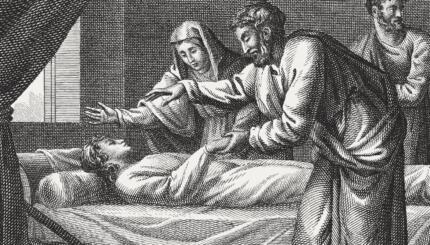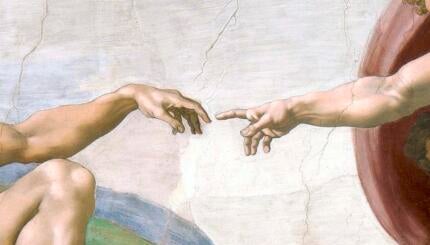Yesterday Matthue and I had the opportunity to study with the good folks at the Pardes Institute of Jewish Studies (at their New York office. Jerusalem is too far away for a lunch and learn). And as it’s Rosh Chodesh Kislev, our topic with Yaffa Epstein centered around Hanukkah.
We looked at the traditional Talmudic text that distinguishes between wicks and oil that may be used for Shabbat and Hanukkah (Babylonian Talmud, Shabbat 21b). What it boils down to is that one can use candles of a lesser quality for Hanukkah. There are many more candles to light on Hanukkah and the goal was not to prohibit anyone from participating by requiring the high quality oil that is essentially required for Shabbat.
While this makes sense in the context of ancient Jewish life (candles were a precious commodity), it also resonates today. I’ve only bought Hanukkah candles once in my life. Every year growing up, those free blue-box-don’t burn-more-than-10-minutes candles from Hebrew school seemed to be just fine for Hanukkah. But Shabbat candles were beautiful pure white candles, which had to be purchased.
The most beautiful lesson we learned, though, comes from the Sefat Emet, who expands on this teaching. He says that the word nefesh (soul) stands for ner/petilah/shemen or “lamp/wick/oil.” And for those whose soul does not “rise up” and light the Shabbat candles, they can be “brought up on Hanukkah.”
He further explains that while the three pilgrimage festivals were given to the Jewish people by God, Hanukkah, along with Purim, “are special times that Israel merited by their own deeds…. Because these holidays were brought about by Israel’s own deeds, every Jewish soul can be restored through them. Every single Jew can find a way of belonging and attaching to them.”
Meaning that Hanukkah is a holiday–in a sense–by the people, of the people, and for the people. And it is surely true that Hanukkah is arguably the most accessible holiday. We only celebrate it once a year, we only celebrate it for about 10 minutes a day, and all we have to do is light some candles and maybe eat some delicious fried food. Who can’t commit to that?
The National Jewish Population Survey proves that this is true. According to their findings, Hanukkah is the most observed holiday with 72% of Jewish lighting candles, while only 28% light candles on Shabbat.
So while some people may dismiss Hanukkah as a “not important or significant” holiday for real Jewish observance, perhaps our tradition — and now our practices teach us quite the opposite.
Hanukkah
Pronounced: KHAH-nuh-kah, also ha-new-KAH, an eight-day festival commemorating the Maccabees' victory over the Greeks and subsequent rededication of the temple. Falls in the Hebrew month of Kislev, which usually corresponds with December.
Shabbat
Pronounced: shuh-BAHT or shah-BAHT, Origin: Hebrew, the Sabbath, from sundown Friday to sundown Saturday.


